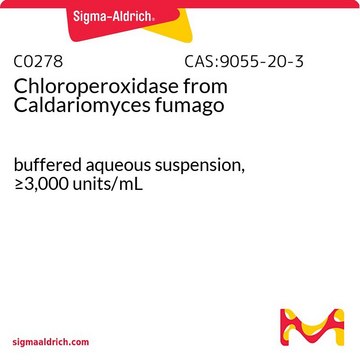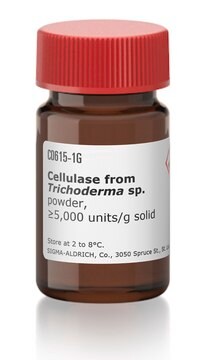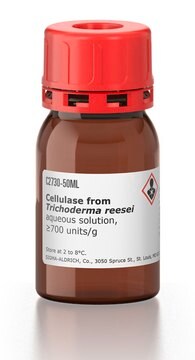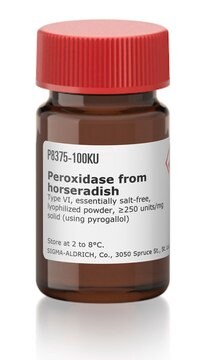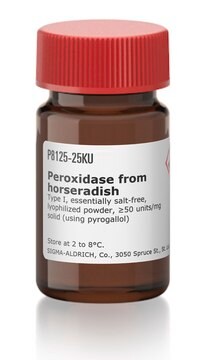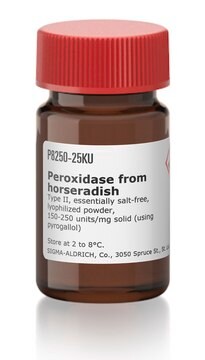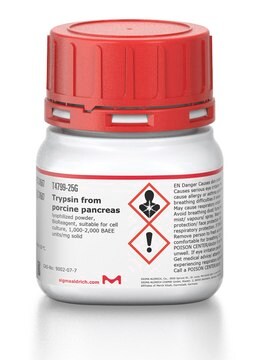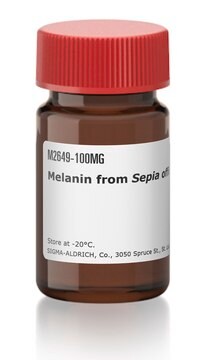B2170
Bromoperoxidase from Corallina officinalis
lyophilized powder, ≥100 units/mg protein (Lowry)
Synonym(s):
BCB, Bromide Peroxidase
Sign Into View Organizational & Contract Pricing
All Photos(1)
About This Item
Recommended Products
form
lyophilized powder
Quality Level
specific activity
≥100 units/mg protein (Lowry)
composition
Protein, ~10%
solubility
water, ethanol: soluble, violet
foreign activity
Chloroperoxidase <1%
storage temp.
−20°C
Looking for similar products? Visit Product Comparison Guide
Application
Bromoperoxidase from Corallina officinalis may be used for staining brain tissue, nuclei, plant chromosomes, reticulocytes, platelets and reticulated red cells. It may be used for the detection of biochemical molecules and the BCB enzyme assay. The BCB assay is also used industrially in optical data storage.
Biochem/physiol Actions
Bromoperoxidase from Corallina officinalis is a phenoxazine dye. The brilliant cresyl blue (BCB) test determines the activity of glucose-6-phosphate dehydrogenase (G6PDH). The activity of this enzyme is greatest in growing oocytes and declines as oocytes mature. It stains reticulocytes and trichomonads. Bromoperoxidase contains a significant amount of nonheme iron. It is activated by vanadate ions. Maximal activity is achieved with stoichiometric vanadium incorporation .
Unit Definition
One unit will catalyze the conversion of 1.0 μmole of monochlorodimedon to monobromochlorodimedon per min at pH 6.4 at 25 °C.
Physical form
Partially purified, lyophilized powder containing MES buffer salts
Storage Class Code
11 - Combustible Solids
WGK
WGK 3
Flash Point(F)
Not applicable
Flash Point(C)
Not applicable
Personal Protective Equipment
dust mask type N95 (US), Eyeshields, Gloves
Choose from one of the most recent versions:
Already Own This Product?
Find documentation for the products that you have recently purchased in the Document Library.
H Yu et al.
Biochemical and biophysical research communications, 160(1), 87-92 (1989-04-14)
A nonheme bromoperoxidase has been purified to homogeneity from the red seaweed Corallina officinalis. Like the corresponding enzyme previously reported from C. pilulifera, this bromoperoxidase contains a significant amount of nonheme iron. However, it is vanadate ion and not iron
Our team of scientists has experience in all areas of research including Life Science, Material Science, Chemical Synthesis, Chromatography, Analytical and many others.
Contact Technical Service